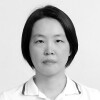Under Taiwan’s current patent practice, personal interviews with the examiners are often held at the request of the applicants or patent attorneys. In general, an applicant, when intended, needs to literally express his wishes for an interview in a response.
In tandem with the rapid growth of technology, the IP office is about to introduce a new interview approach into the current patent system entitled ‘IP Office-industry collaboration interview’, under which the examiner may ex officio initiate an interview.
The introduction of this new approach is mostly due:
To the need for examiners to more rapidly and appropriately search and examine such cutting-edge technologies as stem cell regenerative medicine, quantum dot solar cells, artificial intelligence, big data and 5G with the aid of the applicant; and
For patent applicants to obtain patents as soon as possible for new technologies being developed.
According to the new approach, when an examiner considers it necessary, the examiner may telephone the applicant, inviting him to attend an IP Office-industry collaboration interview.
If the applicant accepts the invitation, the examiner will issue an official letter formally notifying the applicant of the time and place for the interview. On the other hand, the applicant may also request the examiner to hold such an interview during prosecution provided that his application is:
Related to an cutting-edge invention;
An application for which a request for examination has been filed; and
An application which has not received the results of examination either in the form of an official letter informing the applicant of the tentative reasons for rejection or a formal office action.
The examiner will then assess whether the application itself relates to a cutting-edge technology and whether it is necessary to hold an interview. If the answer is negative, the application will go back to the ordinary procedure. Otherwise, the examiner will inform the applicant of the time and place for an interview. If the applicant is a foreigner or foreign entity, a teleconference interview can be held with the assistance of an interpreter the applicant hires.
In the interview, the applicant would be required to make a full explanation of the relevant techniques vis-à-vis the examiner. Apparently, it is more pragmatic that R&D staff of the applicant or the inventor being well-versed in the technique related to the invention participates in such interview.
Prior to the interview, the examiner would not conduct a search or examination. Generally, the examination results will be available six months after the interview is held.

The applicant may send a representative to attend an interview, including the inventor, or a person hired by the applicant. A patent attorney may attend the interview along with the applicant or his representative only. If the applicant's trade secrets or business secrets are involved, the contents disclosed by the applicant or his representative will not form part of the records for interview.
It is good news that the IP Office will provide an approach for a cutting-edge invention application to be appropriately searched and examined, and thereby rapidly maturing into a patent.
Fiona Yin
Patent attorney, Saint Island International Patent & Law Offices
E: siiplo@mail.saint-island.com.tw











